Background
Ethnicity:
On his mother's side, he was descended from an old New Jersey family, the Comptons.
Fred James Cook was born on March 8, 1911, in Point Pleasant, New Jersey, United States.

Rutgers University, New Brunswick, NJ, United States
Cook was a graduate of Rutgers University, where he earned his Bachelor of Letters in 1932.

(A very interesting investigation authored by a 1950s-era ...)
A very interesting investigation authored by a 1950s-era journalist attempting to demonstrate the innocence of Alger Hiss - a former important United States State Department official who was accused of communist subversion and espionage on behalf of the Soviet Union. Author insists that the case against Hiss was never adequately proven and that insufficient documentation and testimony was brought forth during the Hiss hearings. The book raises important questions about the flawed nature and questionable proceedings of American justice.
https://www.amazon.com/gp/product/B08BTLZK8Q/ref=dbs_a_def_rwt_hsch_vapi_tkin_p1_i0
1958

(Passionately concerned with the state of the Republic and...)
Passionately concerned with the state of the Republic and the health of its time-honored legal safeguards, in this book veteran preporter Fred J. Cook takes a long look at the Federal Bureau of Investigation, and at its Director, which will surprise, startle, and annoy many Americans.
https://www.amazon.com/FBI-nobody-knows-Fred-Cook/dp/B0006BM6BY/ref=sr_1_1?dchild=1&keywords=Fred+J.+Cook%2C+The+FBI+Nobody+Knows&qid=1598261221&sr=8-1
1964
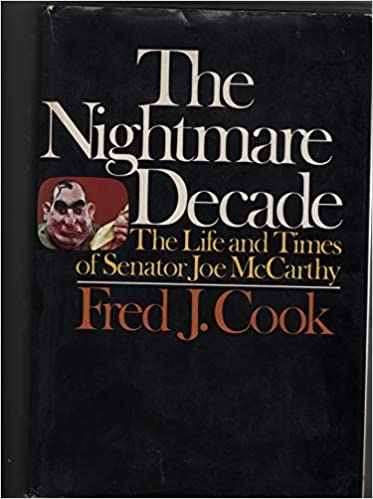
(Recreates the life of the controversial senator, focusing...)
Recreates the life of the controversial senator, focusing on his fanatical accusations of communist influence in the federal government.
https://www.amazon.com/Nightmare-Decade-Times-Senator-McCarthy/dp/039446270X/ref=sr_1_1?dchild=1&keywords=Fred+J.+Cook%2C+The+Nightmare+Decade%3A+The+Life+and+Times+of+Senator+Joe+McCarthy&qid=1598261518&sr=8-1
1971
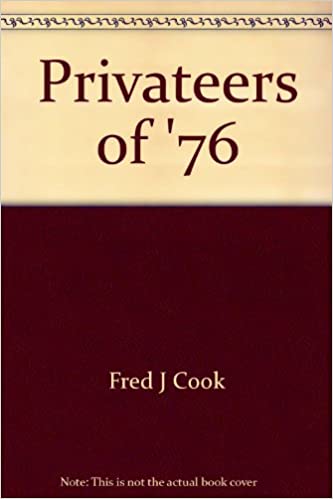
(Discusses the role of privateers in the American Revoluti...)
Discusses the role of privateers in the American Revolution with emphasis on the contributions of such individuals as Nathaniel Fanning and Silas Talbot.
https://www.amazon.com/gp/product/067252127X/ref=dbs_a_def_rwt_bibl_vppi_i2
1976
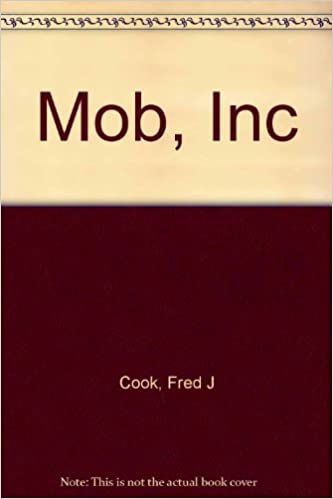
(A history of organized crime in the United States recount...)
A history of organized crime in the United States recounts its origins and growth, its activities and social and political effects, and current trends.
https://www.amazon.com/gp/product/0531001245/ref=dbs_a_def_rwt_bibl_vppi_i11
1977
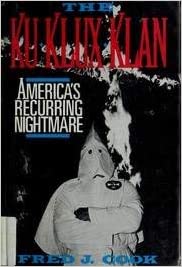
(Reviews the record of the Klan's periodic fading and resu...)
Reviews the record of the Klan's periodic fading and resurgence, finding a consistent pattern of racial bigotry, religious intolerance, exploitation, and violence.
https://www.amazon.com/gp/product/0671684213/ref=dbs_a_def_rwt_bibl_vppi_i4
1980
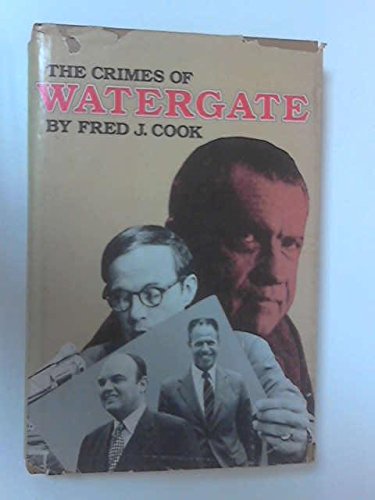
(Told in a fast-paced, journalistic style, this account co...)
Told in a fast-paced, journalistic style, this account covers the Watergate crimes, their cover-up and exposure, the Watergate Committee hearings, and the resignation of Richard Nixon.
https://www.amazon.com/Crimes-Watergate-Fred-J-Cook/dp/0531043533/ref=sr_1_3?dchild=1&qid=1598282827&refinements=p_27%3AFred+J.+Cook&s=books&sr=1-3&text=Fred+J.+Cook
1981
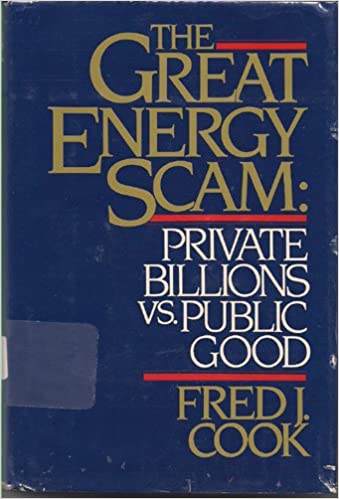
(Argues that the oil companies have an inordinate influenc...)
Argues that the oil companies have an inordinate influence on the United States government, makes accusations of price gouging, and describes the industry's effect on the American economy.
https://www.amazon.com/Great-Energy-Scam-Private-Billions/dp/0025278002/ref=sr_1_1?dchild=1&keywords=The+Great+Energy+Scam%3A+Private+Billions+vs.+Public+Good&qid=1598261786&sr=8-1
1982
Ethnicity:
On his mother's side, he was descended from an old New Jersey family, the Comptons.
Fred James Cook was born on March 8, 1911, in Point Pleasant, New Jersey, United States.
Cook was a graduate of Rutgers University, where he earned his Bachelor of Letters in 1932.
During the 1930s, Cook embarked on a journalism career, working as a reporter and later editor for the Asbury Park Press, then as an editor for the New Jersey Courier. While editor of the weekly New Jersey Courier, he covered the 1937 Hindenburg disaster. It was during his stint as a rewrite man for the New York World-Telegram and Sun in the 1940s and 1950s that Cook became disenchanted by what he felt were distortions in news reporting, so he became a freelance writer in 1959.
Cook turned his investigations into articles and books, including The FBI Nobody Knows (1964), The Secret Rulers: Criminal Syndicates and How They Control the U.S. Underworld (1966), The Nightmare Decade: The Life and Times of Senator Joe McCarthy (1971), American Political Bosses and Machines (1973), and The Great Energy Scam: Private Billions vs. Public Good (1982).
Cook adapted his research for a younger audience as well, producing such juvenile biographies as Franklin D. Roosevelt: Valiant Leader (1969), and books on American government for young adults, including Golden Book of the American Revolution (1959) and American Political Parties (1971). His last book was the 1984 autobiography Maverick: Fifty Years of Investigative Reporting.
Fred James Cook was a well-known investigative reporter who wrote revealing exposés on crime and corruption in federal agencies and large corporations. His writing was aimed at exposing lies and cover-ups by government agencies, such as the FBI and CIA, the military, big businesses such as oil companies, and organized crime.
His books on political topics included The Unfinished Story of Alger Hiss, The FBI Nobody Knows, Barry Goldwater: Extremist of the Right, The Cuban Missile Crisis, The Ku Klux Klan: America's Recurring Nightmare, and The Crimes of Watergate.
Cook received several journalism awards for his work, including four Page One Awards from the New York Newspaper Guild and a Sidney Hillman Award.
(A very interesting investigation authored by a 1950s-era ...)
1958(Argues that the oil companies have an inordinate influenc...)
1982(Told in a fast-paced, journalistic style, this account co...)
1981(Reviews the record of the Klan's periodic fading and resu...)
1980(Discusses the role of privateers in the American Revoluti...)
1976(A history of organized crime in the United States recount...)
1977(Passionately concerned with the state of the Republic and...)
1964(Recreates the life of the controversial senator, focusing...)
1971(Discusses the changes that would occur in public and priv...)
1984(Mark Hanna, Frank Hague, and John V. Kenny are among the ...)
1973Though conservative in many respects, Cook often took positions usually identified with the left. For instance, he opposed the death penalty, taking the position that it was cruel and didn't deter crime. He was also highly critical of the FBI, the CIA, and the Alger Hiss perjury conviction, as well as oil companies and defense contractors.
It's also worth noting, that, in 1968, Cook signed the "Writers and Editors War Tax Protest" pledge, vowing to refuse tax payments in protest against the Vietnam War.
Cook's 1964 book, Barry Goldwater: Extremist on the Right, led to a Supreme Court case that later became known as the Red Lion case. Cook was accused of slanted reporting by Billy James Hargis on the radio program Christian Crusade, and as a result, Cook demanded the right to broadcast a rebuttal. One of the stations that was to make the broadcast, WGCB in Red Lion, Pennsylvania, sued the FCC, saying that being forced to broadcast Cook's rebuttal was a violation of the station's free speech right to determine for itself which programs it aired. The United States Supreme Court, however, ruled against WGCB, saying that free speech takes second place to the public's right to know all sides of an issue.
